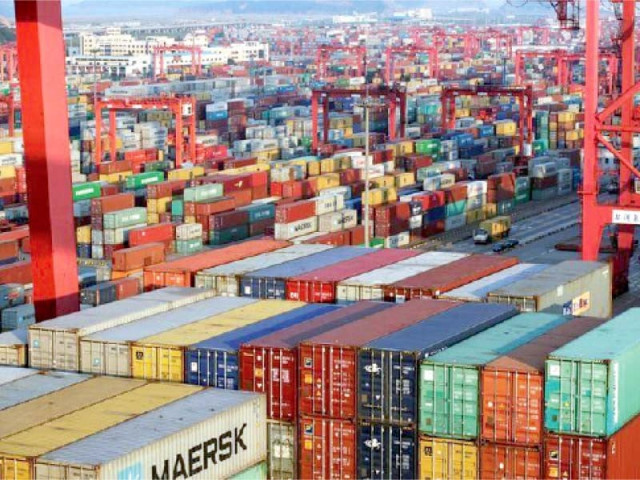Policy rate hike to slow economy
PBC CEO fears drop in imports will hit investment in industrial sector

Pakistan is set to see a slowdown in economic activities in the wake of recent monetary policy tightening by the central bank, as the move is targeted at curbing imports, 91% of which goes for the expansion of domestic and export industries, and meeting raw material and food needs.
“Consumer products make up nearly 8% of imports while 1% share is occupied by vehicles (ready to drive),” Pakistan Business Council (PBC) CEO Ehsan Malik said while talking to The Express Tribune. “Curbing them to some extent may not directly hurt economic activities in the country.”
The remaining 91% of imports consist of industrial machinery, petroleum products, industrial and agricultural inputs (raw material) and food items (like wheat, sugar and cooking oil). Making them expensive and monetary tightening will definitely hit investment activities in industries.
This would, in turn, make exports expensive and uncompetitive as well as contribute to food inflation, he said.
According to him, nearly two-thirds of the surge in import bill during the current fiscal year to date (July-October) came in the wake of rise in global prices of commodities, which Pakistan imports to meet its domestic requirement.
The remaining one-third increase in the import bill is due to the volumetric growth (pickup in demand). “Imports (in terms of volumes) are bound to slow down in the aftermath of price hike in the global market,” he said.
“The growth in import of plant and machinery for industrial setups and transport vehicles (mostly buses and trucks) … is good for expansion of the economy,” Malik said, adding that the growth in the segment came mainly due to the introduction of Temporary Economic Refinance Facility (TERF) by the central bank during Covid-19.
Banks disbursed Rs436 billion for machinery imports through the facility that expired in March 2021.
Pakistan Bureau of Statistics (PBS) data suggested that machinery imports grew 41% to $3.71 billion in the first four months (July-October) of current fiscal year 2021-22.
Inward shipments of textile machinery recorded an increase of 110% to $297 million during the period under review compared to $141.5 million in the same period of last year.
The textile industry fetches almost 60% of total export earnings every year. “The growth in import of textile machinery will help increase exports in future,” he said.
Similarly, imports of modes of transport like trucks and buses, motor vehicles, aircraft and ships surged 140% to $1.48 billion in the four months under review compared to $618 million in the same period of last year, according to the PBS.
Energy imports rose 96% to $6.2 billion in July-October 2021 compared to $3.17 billion in the same period of last year, the PBS said.
The increase in energy imports was witnessed primarily due to a significant hike in prices of crude oil and liquefied natural gas (LNG) in the global market.
Foods imports grew 37% to $3.12 billion in July-October 2021 compared to $2.28 billion in the same period of previous year. The growth was mostly because of price hike in the global market, the PBS data suggested.
Imports of textile inputs surged 65% to $1.57 billion while inward shipments of agricultural and other chemicals rose 75% to $4.54 billion.
Pakistan’s total imports surged 65.41% to $25.1 billion during July-October FY22 compared to $15.17 billion in the corresponding period of last year.
The exponential growth in inward shipments contributed significantly to the widening current account deficit and triggered rupee depreciation, according to the central bank.
“The monetary policy tightening like aggressive increase of 150 basis points in the benchmark interest rate (to 8.75%) and reduction in circulation of money in the economy through an increase in commercial banks’ cash reserve requirement (CRR) by 100 basis points to 6% will hurt economic activities,” Malik said.
Published in The Express Tribune, November 21st, 2021.
Like Business on Facebook, follow @TribuneBiz on Twitter to stay informed and join in the conversation.



















COMMENTS
Comments are moderated and generally will be posted if they are on-topic and not abusive.
For more information, please see our Comments FAQ